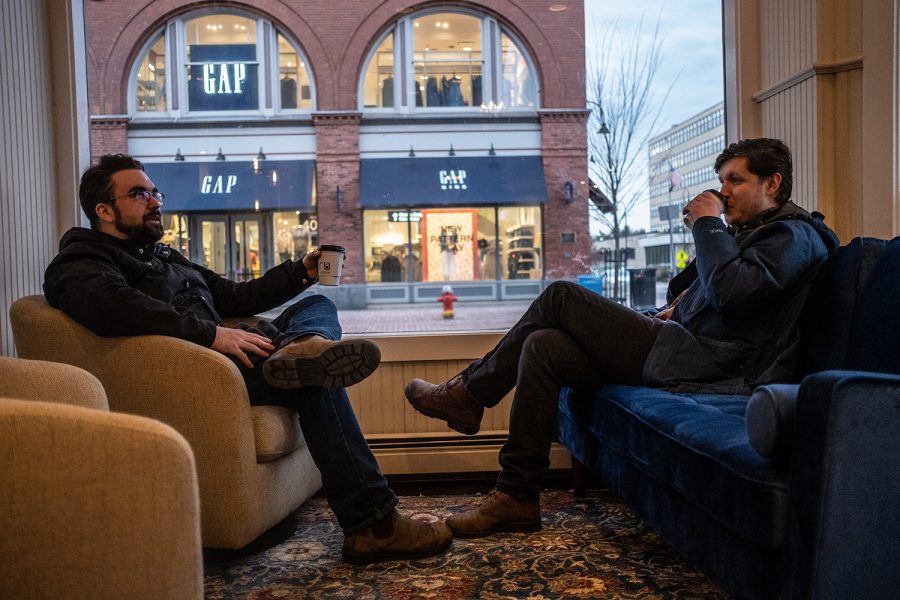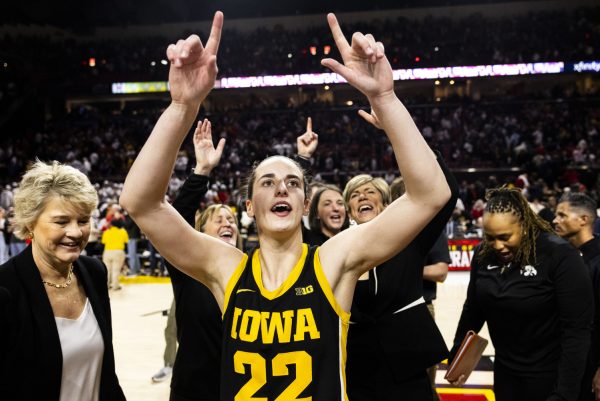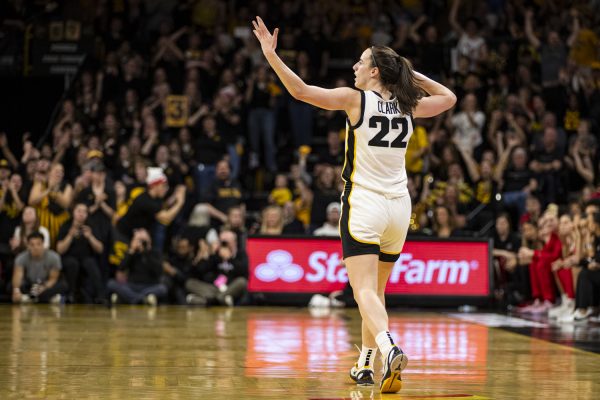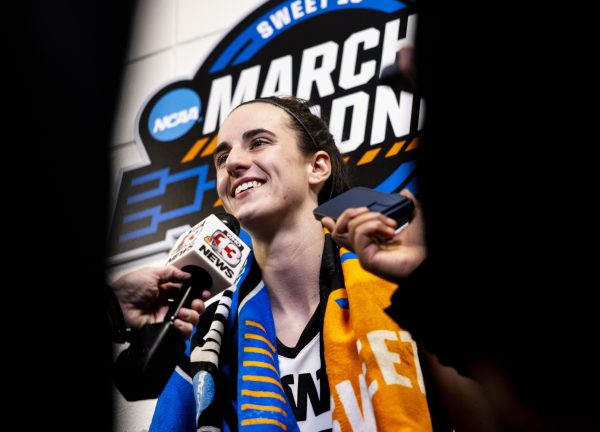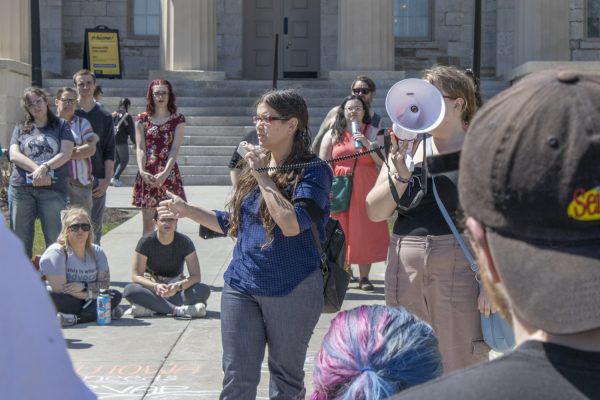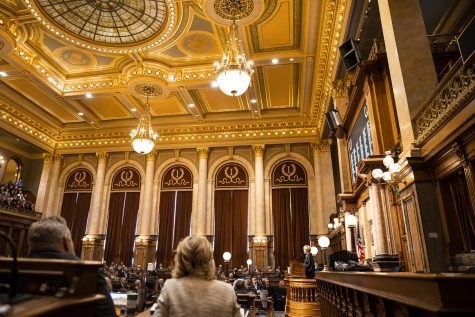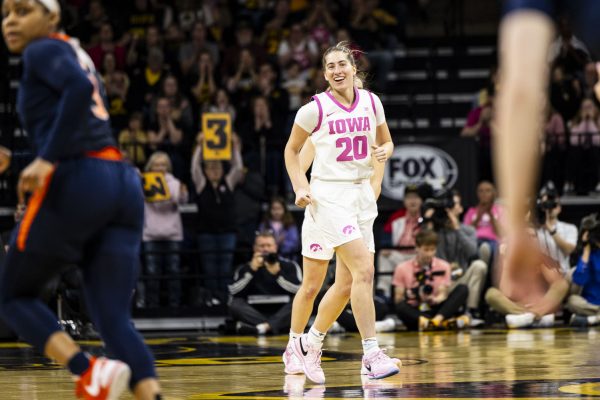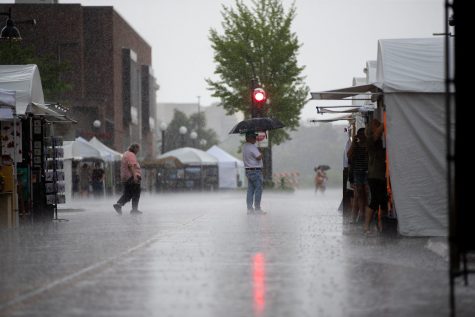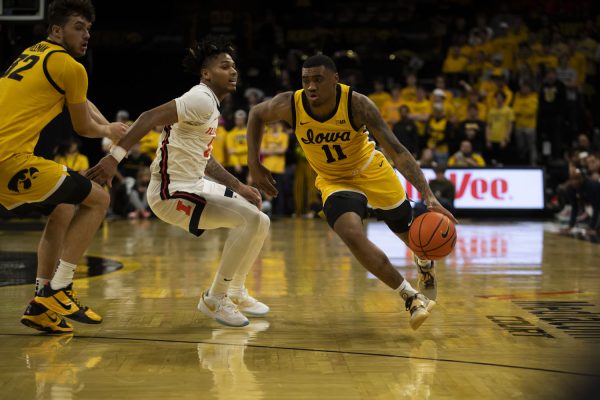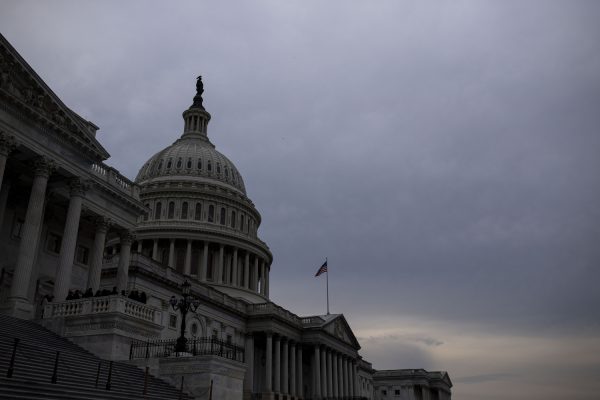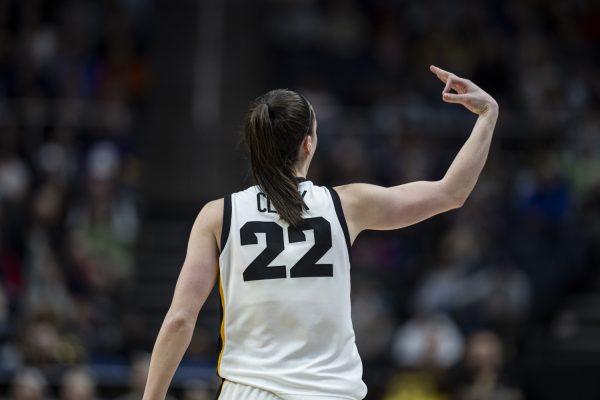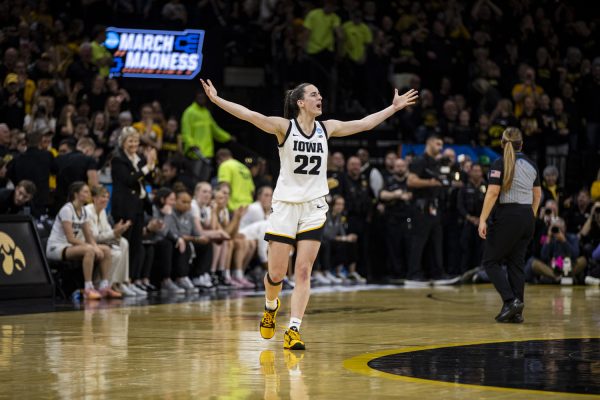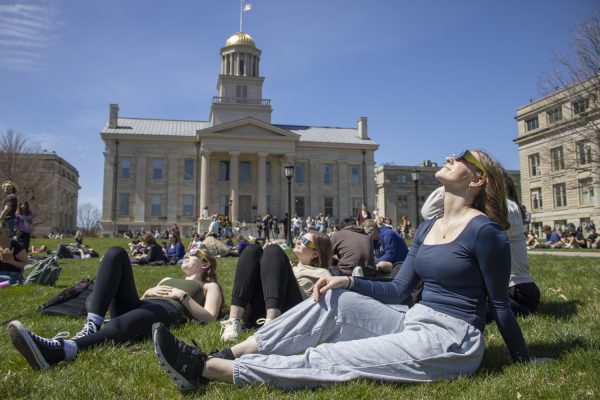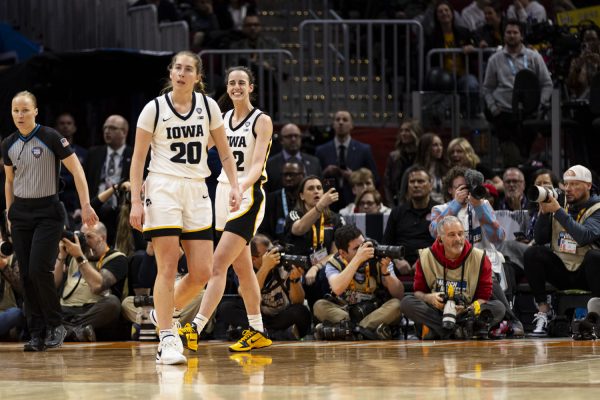Voices from Burlington: Locals in Sanders’ liberal stronghold prepare for Super Tuesday
On the eve of Super Tuesday, Burlington voters talked predictions for the primary, the local experience in Burlington, and the appeal of Bernie Sanders.
(From left) Dominic Barone and Max Crystal pose for a portrait in Kru Coffee in Burlington, Vermont on Monday, March 2, 2020.
BURLINGTON, Vt. — If you spend enough time in Burlington, you’re likely to run into Bernie Sanders.
Running into Sanders is a common occurrence in the city of just over 42,000 people, said Chris Caswell, who lives in Burlington and plans to vote for Sanders. Caswell met him in 2016 en route to a production where she played former Democratic presidential nominee Hillary Clinton.
“On the election night in 2016, I was going to play Hillary, and a friend of mine was playing the other guy, and we ran into Bernie in a bagel place, and he agreed to take a photo with us,” she said.
Locals said they see the presidential hopeful and former mayor of Burlington at the airport, eating in restaurants, and wandering down Church Street, a shopping marketplace similar to Iowa City’s own Pedestrian Mall, peppered with old stone-and-brick buildings, locally sourced restaurants, and charming artisanal boutiques.

A flyer for a Senator Bernie Sanders, I-V.T is seen in the in Dudley H. Davis Center on the University of Vermont campus in Burlington, Vermont on Monday, March 2, 2020.
Burlington is an outlier in Vermont, which is dominated by the rolling Green Mountain range and is mostly rural outside of a few small cities. The state is 94 percent white, according to the U.S. Census, and has a population of more than 600,000.
In the Iowa caucuses on Feb. 3, Sanders finished close behind former South Bend, Indiana Mayor Pete Buttigieg in the delegate count, but Sanders pulled in a larger raw body count in both the first and second alignments.
Outside the state, Sanders’ celebrity status draws massive crowds to his rallies, and the 13-year senator of Vermont shared the stage with hit musical acts like Bon Iver and Vampire Weekend in Iowa ahead of the caucuses. But locals were casual about his presence in the city.
Dominic Barone, 31, who also plans on voting for Sanders, said he’s run into the Green Mountain State senator while grocery shopping.
“We both live in the new North End, [my partner] Ellen yelled at him because he was taking too long in front of the ice cream,” Barone said.
Vermont is one of 14 states holding Democratic primary elections on Super Tuesday. The second least-populous state in the union, Vermont only accounts for 16 of the 1,357 delegates up for grabs.
But it has symbolic value for Sanders, the long-time junior senator of the state and former Burlington mayor. In 2016, Sanders swept the Green Mountain State, taking all 16 delegates.
While there are few robust primary polls of Vermont, seven locals interviewed by The Daily Iowan said they expected Sanders to take all the delegates on Tuesday.
“Burlington is very liberal, I think it went 80 percent Bernie last time,” Emi Cepeda, 25, said over buffalo wings at the Church Street Tavern. Sanders actually took nearly 86 percent of the Burlington vote in the 2016 Democratic presidential primary. “The general area is very progressive.”

(From left) Emi Cepeda and Colin Dawson pose for a portrait in Church Street Tavern in Burlington, Vermont on Monday, March 2, 2020.
The Vermont Progressive Party, a social-Democratic party that started in Burlington, boasts the highest number of seats across federal and state offices after the Democratic and Republican parties. The party held the Burlington Mayor’s office following Sanders’s departure from 1989 to 1993, and then again from 1995 to 2012.
Cepeda is supportive of Sanders, but as a registered independent, she doesn’t plan on voting in the Democratic primary on Tuesday. Cepeda said her values don’t align with the mainstream Democratic Party, and she said sitting out the primary isn’t a big risk, since she expects Sanders to win the state primary.
Max Crystal, 25, who plans to vote but is still undecided, referred to the city as “Bernieville.” But outside Burlington, he said, the picture changes.
“There’s two Vermonts,” Crystal said. “The liberal area of Burlington, and then as soon as you get outside of Chittenden County, it’s very rural and very Republican.”
Cepeda said it’s common to see Trump flags in Essex Junction, a town right outside Burlington. Despite the more conservative areas beyond the liberal borders of Burlington, Sanders has won by more than 65 percent of the statewide vote in each of his three senate races since 2006.
In 2016, Hillary Clinton won Vermont with nearly 57 percent of the vote, and President Trump trailed with 30 percent. Clinton won Essex County with 65 percent of the vote.
Colin Dawson, 27, another independent who doesn’t plan to vote in the primary, said that’s because people in Vermont don’t always vote along party lines.
“Vermonters kind of just don’t trust…establishment people in a lot of senses, so even some right-wing, right-leaning people still vote Bernie,” he said.
Sanders is going into Super Tuesday with wins in two of the first four early states — Sanders won in Nevada and New Hampshire and performed well in Iowa. With a close race between him and Joe Biden, the results on Tuesday will be vital for the future of the race.
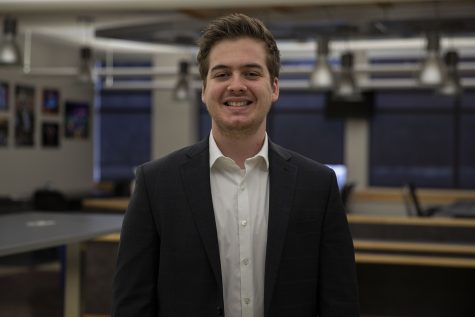
(he/him/his)
Caleb McCullough is the Executive Editor at The Daily Iowan. Caleb is a senior studying journalism and political science, with a minor in...
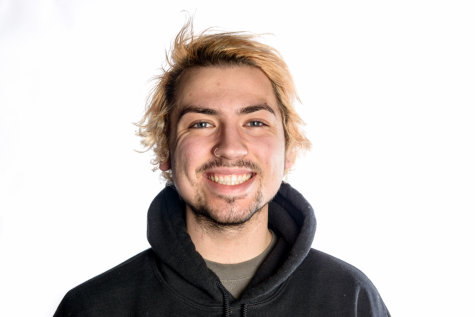
Email: [email protected]
Wyatt Dlouhy is a photojournalist at The Daily Iowan. He is a fifth-year student both studying journalism,...



